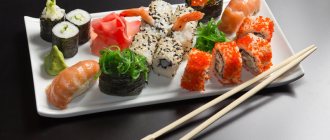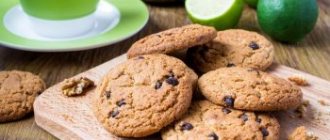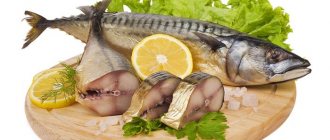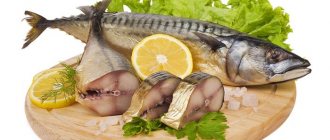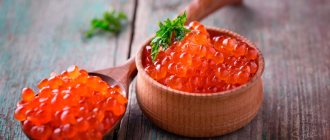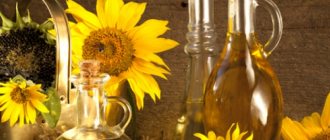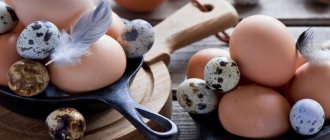Benefits for nursing mothers
Kozinaki has a number of beneficial properties during breastfeeding. Different ingredients have their own purpose when feeding a baby.
From seeds
Sunflower seeds have the following elements:
- vitamin E
- B vitamins
- selenium, phosphorus
- magnesium, potassium
Consumption of seeds has a beneficial effect on the condition of mother and baby. The main reason is the content of amino acids and fats.
Kozinaki from seeds can be included in the diet of nursing mothers, since the sunflower product contains vegetable protein. This is a good replacement for animal protein.
With sesame
Georgian sweetness with sesame seeds is useful for the following reasons:
- Nicotinic acid content. Niacin regulates the amount of fat and normalizes the amount of cholesterol.
- Vitamin E synthesizes lactation hormones.
- B vitamins have a good effect on digestion, stimulate mental activity, and have a beneficial effect on the nervous system.
Sesame seeds contain a lot of calcium, are useful for lactation, and have a mild laxative effect.
With nuts
All nuts contain vegetable protein, fatty acids and mineral components. Nuts are leaders in fiber content; they help get rid of constipation in the first month after childbirth.
The healthiest nut for a nursing mother is walnut. It has a good effect on the brain, heart, blood vessels, and normalizes blood pressure.
With honey
Honey in kozinaki loses some of its beneficial properties due to heating, but remains a unique antioxidant. In addition, honey has anti-inflammatory and antiseptic properties.
Interesting fact! In the twentieth century, nursing mothers were advised to consume sunflower seeds. It was believed that the beneficial properties of breast milk were increased.
Is it possible to eat kozinaki during breastfeeding?
Kozinaki is a tasty and healthy delicacy. Sugar, honey and molasses are used as sweeteners. In addition, dried fruits and spices can be added to kozinaki. Since a nursing mother needs to adhere to the safest menu possible, which cannot cause allergies or other adverse reactions, the possibility of consuming kozinaki depends on its composition. So, honey, some dried fruits, peanuts are strong allergens and you need to be especially careful with them. But there is no categorical ban even on these products; it is important to introduce them correctly into the diet. Therefore, if you are wondering what sweets you can eat while breastfeeding, you can pay attention to kozinaki.
Homemade kozinaki is especially useful during breastfeeding.
The benefits of kozinaki during breastfeeding
As already mentioned, the basis of the product is nuts, seeds and rice. The remaining components may change, so the list of beneficial properties of kozinaki may be supplemented. They are rich in vitamins, minerals and other beneficial substances, including vitamins B, E, PP, calcium, potassium, magnesium. The product contains a lot of fiber that is beneficial for the body. This composition provides the following beneficial properties of kozinaki:
- getting rid of cholesterol;
- removal of toxins;
- improving the functioning of the gastrointestinal tract;
- improving the functioning of joints;
- prevention of mastitis;
- strengthening bone tissue;
- improving brain function;
- strengthening vascular walls;
- strengthening the immune system;
- improving lactation and increasing the nutritional value of breast milk;
- normalization of the nervous system;
- normalization of pressure;
- improving the functioning of the heart and blood vessels, etc.
Possible harm to nursing mothers and babies
Most often, the use of kozinaki is not accompanied by negative reactions. But we must remember that all the substances from the food that the mother eats are passed on to the baby through the milk. Since the baby’s body adapts to environmental conditions for a long time, and organs continue to form, it may react incorrectly to food. This may manifest itself as colic, bowel problems or allergies. If you follow the rules for introducing new foods into your mother’s diet, the risk of such reactions is minimal.
Honey is a sweet product that is a strong allergen. It is forbidden to eat it until the baby is 3 months old. In addition, it can provoke the development of caries in the mother if the rules of oral hygiene are not followed. Peanuts are also a strong allergen. If you or your baby has an allergic reaction to these products, choose kozinaki with a different composition.
A mother or child may have an individual intolerance to some component of the product. We should not forget that kozinaki is very high in calories, so those who are losing weight or obese people are not recommended to eat them. In addition, the product can provoke strong surges in sugar, which should be taken into account by people suffering from diabetes.
Kozinaki can have a wide variety of composition. The main thing is that they do not contain chemical additives.
The natural components of kozinaki can affect the functioning of the gastrointestinal tract in a variety of ways: weaken, strengthen, cause bloating. Therefore, people with gastrointestinal diseases, especially in the acute phase, should refrain from consuming kozinaki. It should also be taken into account that industrially produced kozinaki may contain chemical additives that are harmful to the health of mother and baby.
In the first month after birth
Since the baby’s body is especially sensitive to the introduction of new products into the mother’s diet in the first month, it is better to postpone kozinaki until a later date. If the composition contains products that are classified as allergens, it is prohibited to eat them for up to 3 months. The components of the product are quite difficult to digest. This is another reason to put off kozinaki at least until the baby is one month old. Starting from the second month, you can already eat kozinaki in small quantities. It is recommended that before trying kozinaki, you introduce its components into the menu. Try a small piece for the first time. If for several days you have not noticed any reaction in the form of a rash, itching, swelling, problems with bowel movements, etc. in your baby, you can gradually increase the dosage.
Selection and use
The choice of kozinaki during breastfeeding should be taken with the utmost responsibility. First of all, pay attention to the composition. Choose components that are familiar to you. If you never eat peanuts, the breastfeeding period is not at all suitable for dating. Try to avoid strong allergens, such as honey. Pay attention to the spices and glaze. It is better to choose a product with the simplest composition to minimize risks. Also, avoid chemical additives, fragrances, dyes, etc.
Choose a packaged product. It is better if it is in a transparent package so that you can see if there is any mold, strange stains, accumulations of sugar and peel residues. Don't forget to look at the expiration date.
The norms and characteristics of use depend on the composition and individual characteristics of the nursing woman. It is advisable to consult a doctor before introducing it into your diet. General recommendations for use are given in the table.
| 1 month | 2 month | 3 month | 4 month | |
| Recommendations for use | Prohibited | Possible on doctor's recommendation | It is allowed to be introduced into the diet in minimal quantities after checking the reaction to the components. Choose the most non-allergenic composition. Allowed to eat up to 50 grams. a day several times a week. | Allowed to eat 50 grams. per day or 200 gr. in Week. The presence of honey, peanuts and other allergens is allowed. |
Possible harm
Kozinaki is a natural product that can be consumed by mothers while breastfeeding. But there are exceptions in which the child will be harmed. These include:
- Products with flavors and dyes can cause baby allergies. You need to carefully study the composition before purchasing sweets.
- If your baby has stomach upsets, diarrhea, or abdominal colic, you should refuse the treat. Kozinaki has laxative properties and can worsen gastrointestinal problems of both mother and baby.
- The product has a high calorie content, you should not lean on it if you are overweight. It sharpens appetite and provokes surges in blood glucose.
- Negative effect on tooth enamel. The dessert is very hard and can injure your teeth and gums.
In rare cases, a newborn may be allergic to honey and additives. Diathesis usually appears on spices and spices; they are often sprinkled on sweets to enhance the taste.
Dairy products
Dairy and fermented milk products are perfect for restoring protein reserves in the mother’s body. Also, fermented milk products are enriched with phosphorus, calcium, vitamins A and D. Lacto- and bifidobacteria help normal digestion.
• Kefir. Has a beneficial effect on intestinal microflora. During the feeding period, it is recommended to drink 1-2 glasses per day. One glass preferably before bedtime.
• Ryazhenka. Just like kefir, it is recommended to consume 1-2 glasses. Preferably in the afternoon.
• Varenets, snowball. The same recommendations as for fermented baked milk.
• Yoghurts. You should choose both drinkable and thick ones. Preference should be given to yoghurts without flavors.
• Cottage cheese. Can be consumed both ready-made and in the form of casseroles and cheesecakes. It is advisable to eat cottage cheese every other day. The daily norm is 100 g. If it is cheesecakes or casserole, the norm can be increased to 250 g
• Cheese. Enriched with proteins, fats and calcium. It is simply necessary to include it in your diet. The daily norm is 30-50 g.
How to use
It is not recommended to eat honey immediately after childbirth. The first weeks of the baby are considered adaptive; at this time it is better to adhere to a certain diet.
It is recommended to consume Georgian dessert four weeks after giving birth. During this period, it is already possible to introduce a diet of sunflower seeds, sesame seeds and nuts. If there is no reaction to them, then they try kozinaki. If the baby has no rashes, then you can safely enjoy the sweets.
An important rule when eating is compliance with the measure.
What experts say
Nutritionists allow women to take kozinaki during breastfeeding. Experts advise introducing kozinaki gradually, starting with small doses. This method reduces the likelihood of allergies in the baby.
The baby receives all useful elements through breast milk. Kozinaki is a healthy product, so you don’t need to give it up. If a nursing mother ate it during pregnancy, the risk of allergies decreases. If you have an individual intolerance to the ingredients, you should avoid sweetness.
When and how much?
If a nursing mother is not allergic to honey, nuts or other components of kozinaki, she can try them while breastfeeding. But you need to adhere to some rules.
- Is it possible to take kozinaki while breastfeeding a newborn? Of course not!
- A woman can try the delicacy for the first time only 2.5-3 months after the birth of the baby.
- To begin with, it is permissible to eat a small piece, after which you need to monitor the child’s reaction to the introduction of a new product into the mother’s diet for several days.
- Enjoy kozinaki in the morning after meals.
- You should start your acquaintance with a treat made from sunflower seeds or sesame seeds. If the baby does not show a negative reaction to them, a nursing mother can try kozinaki with nuts.
- During the day, a nursing mother can eat no more than 50 g and no more than 200 g per week.
Reviews from mothers
What do women who consumed kozinaki during breastfeeding say?
Elena
I am relaxed about sweets when breastfeeding. I am an experienced mother, I breastfed all of them with two sons and a daughter. I adhere to the following regimen - a minimum of fatty, salty foods, I did not eat processed foods, chocolate, sweets, or canned food. I love kozinaki very much, I didn’t refuse them even during the feeding period. The children had no allergies.
Olga
I really wanted sweets when I was breastfeeding my son. The doctor said that I could have kozinaki. I ate them a little at a time and took them outside when I walked with the stroller. A very filling snack when you have no strength or energy.
Product benefits
- Kozinaki contains a large amount of vitamins A, B, E, PP. Potassium, calcium, phosphorus, iron, magnesium iodine and others also have a beneficial effect on the mother's body. In order not to harm the child and not to put excessive strain on the functioning of his digestive system, the product should be introduced into the diet gradually, in small portions.
- Fiber is necessary for the body to normalize the functioning of the gastrointestinal tract. Using the element, it is possible to restore and normalize the operation of the entire system.
- The product contains a large amount of fats, proteins and carbohydrates. The components are necessary for the proper functioning of all internal organs. If you are sure that there is no allergy, then along with the kozinaki the baby’s body will receive all the necessary calories for proper development. Tolerance and absorption are individual for each child, so carefully monitor his weight.
- When breastfeeding, walnuts are beneficial for the body. The ingredient normalizes the functioning of the heart and nervous system. Just a few pieces of treats will bring your blood pressure back to normal. They help remove parasites from the body and also improve liver function. As a result, every organ is toned, and the muscles are noticeably strengthened.
- Sesame can also be used instead of seeds. The product is useful even for a newborn. With its help, waste and toxins are removed from the body. Regular consumption helps prevent problems with blood pressure. The essential oils included in the composition improve lipid metabolism. As a result, every cell in a woman’s body functions correctly. Sesame is used as a prophylaxis against mastopathy. That is why doctors recommend including this food product in your weekly diet.
- Honey also has a positive effect on the body of a nursing mother. This product has long been used as a major antioxidant. Thanks to it, metabolism improves, and waste and toxins are removed from the body naturally. Honey has an antiseptic effect. The component is used to treat inflammatory processes.
Honey is a strong allergen


